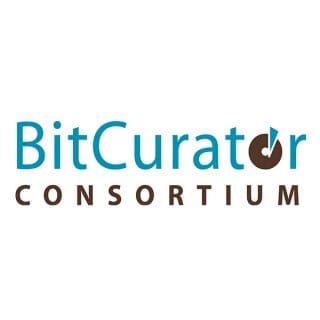
January 22, 2019
Community Validation
By Sam Meister and Alex ChassanoffReaching new audiences and assessing growth potential
After a community has formed and coalesced around a central set of ideas, the next step on the path to maturity is to test the community’s validity. In this crucial “validation” stage, communities often need to strike a careful balance between focusing on continued internal development while simultaneously expanding their external networks of support.
The BitCurator Consortium (BCC) is a prime example of a community in its validation stage. Launched in 2014 to provide a foundation for the BitCurator software environment, the BCC is an independent, community-led membership association that supports the ongoing work and practice of digital forensics in collecting institutions. BitCurator is an open source software environment that packages digital forensics tools for managing born-digital content. The BitCurator environment was developed through a collaborative effort between UNC Chapel Hill SILS and the Maryland Institute for Technology in the Humanities (MITH), receiving support from the Andrew W. Mellon Foundation throughout its initial phases of development and implementation.
The BCC began engaging in community cultivation work with Educopia in 2014 as the Mellon-funded project team began grappling with how to sustain its early momentum. In 2015, the membership organization formally launched and opened to new members. As a key component of this effort, the BCC elected its leadership; established its mission, vision, and values statements; and conducted a market analysis and SWOT analysis. To strengthen its community engagement levels, BCC designed and implemented multiple channels for members, prospective members, and allied organizations to engage in communications, events, and research projects.
More recently, BCC’s leadership began working with Educopia to ensure its fiscal records are available, transparent, community reviewed, and able to appropriately inform budgeting, fundraising, and other functions. In compliance with its new Privacy Policy (released in 2018), the community is now using Customer Relationship Management software (Salesforce) to improve its understanding of its extended community of members, software users, and collaborative partners across sectors. The net result to date is a strong, growing network of individuals and institutions that are embracing and adapting digital forensics methods and tools within libraries, archives, and museums.
With its improved infrastructure, BCC is now working with Educopia’s Communications Manager to create tailored outreach addressing specific user needs as part of a larger campaign that centers on the Winter Membership Special.
The BCC is able to inform this outreach effort with detailed ROI data that can be presented to different groups of prospective members, explicitly addressing how BCC adds value to each group’s digital curation efforts. Using email campaign tools (e.g. MailChimp) and various analytics platforms, BCC is able to efficiently reach a wider audience of potential members and analyze the effectiveness of specific campaigns.
The significant growth of the community’s infrastructure through concrete, well-planned activities during “Validation” positions the BitCurator Consortium beautifully for the next step in its maturation: moving into “Acceleration” in 2019.
To learn more about the BitCurator Consortium’s activities and how you can get involved, visit their membership page. Keep tabs on recent happenings by subscribing to BCC’s newsletter.
And if you’re curious about Educopia’s approach to the formation and evolution of collaborative communities, Community Cultivation: A Field Guide has a wealth of activities, tools, and hard-won lessons for community organizers and leaders.

![Photo of blue, yellow, black, and white cubes in the background. Photo of Matthew Farrell wearing blue shirt and purple stocking cap. Text reads: "What is your favorite thing about being a member of the BitCurator Consortium? The community of practitioners. Conversations that come out of BCC calls or events are some of the only times where I can mention a particular tool or technique without needing to explain why it's part of our toolbox, how it works, or what overall purpose it serves. The relationships formed through meeting at the BitCurator Users Forum, on BCC community calls, or through other BCC-affiliated efforts have been some of the most fruitful of my professional career. [Matthew] Farrell. Digital Records Archivist. Duke University."](https://educopia.org/wp-content/uploads/2018/11/BCC_EC-Testimonials_Farrell_v2-200x100.jpg)

